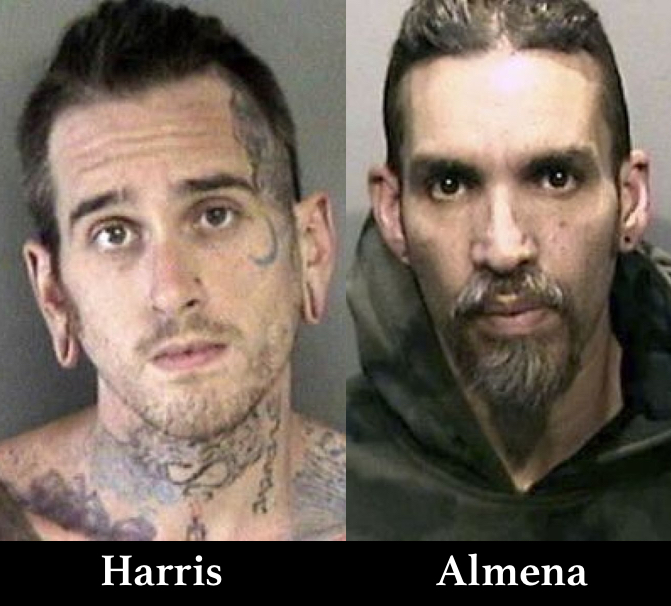Defense attorneys for Ghost Ship warehouse master tenant Derick Almena and creative director Max Harris said on Tuesday that Almena and Harris should be found not guilty of the charges for a 2016 fire that killed 36 people because they had no idea the Oakland building was unsafe.
In their closing arguments in the trial of Almena, 49, and Harris, 29, on 36 counts of involuntary manslaughter for the blaze during a music party at the warehouse in the 1300 block of 31st Avenue on the night of Dec. 2, 2016, defense lawyers said Almena and Harris thought the building was safe because multiple fire and police officials had visited the building on multiple occasions and hadn’t pointed out any problems.
Referring to Harris, his attorney Curtis Briggs asked, “What clue would he have had that there were problems?” Briggs said, “I wish somebody had told Max there were problems there because then he would have done something.”
“My client relied on officers, firefighters and Child Protective Service officials who implicitly and expressly said the premises were safe.”
Tony Serra, lawyer for Derick Almena
Serra said Almena believed the warehouse, which served as an artists collective where up to 25 people lived, “was so beautiful that no one wanted to evict them, to enforce the fire code or make an inspection.”
Alameda County prosecutor Autrey James alleged in his closing argument on Monday that Almena and Harris are criminally responsible for the fire because a reasonable person should have known that there were fire safety issues at the warehouse since it lacked important safeguards such as fire sprinklers, smoke alarms, lighted exit signs and stairs that were in good condition.
James alleged that Almena started violating the terms of the building’s lease almost immediately after he signed it on Nov. 10, 2013, by allowing people to live there even though it was zoned for commercial use, not residential use. Almena never told the building’s owners that he planned to have people live there and have large music parties there, James said.
James also said that although Harris didn’t move into the warehouse until December 2014 he’s still criminally responsible for the fire because he “exerted control of the Ghost Ship on a regular basis” by collecting rent for other tenants and organizing many of the musical events there.
Serra and Briggs said there’s reasonable doubt as to the guilt of Almena and Harris because there’s evidence that the fire was an act of arson that the two men couldn’t have prevented, as a defense witness testified that she overheard a group of 14-19 men congratulate themselves on starting the fire at the warehouse. The defense attorneys said other witnesses also testified that they heard men fighting and bottles being broken before the fire started.
In his fiery argument, Serra alleged that Oakland fire officials lied on the witness stand by saying that they weren’t aware of the conditions at the warehouse and did all they could to try to save the 36 people who died in the blaze.
Serra told jurors, “The Fire Department from beginning to end has misled us and this is a case that is predicated on perjury and saving money,” claiming that fire officials don’t want to admit any responsibility for the fire because the city of Oakland is being sued for millions of dollars by the victims’ family members.
Prosecutors are “scapegoating” Almena and Harris in order to protect the city of Oakland from responsibility, Serra also alleged.
“This is a sad miscarriage of justice. It’s not right, it’s not ethical.”
Tony Serra, lawyer for Derick Almena
Serra said there’s reasonable doubt that Almena acted with a reckless disregard for human life because he never would have risked the lives of his wife and three children by having them live with him at the warehouse if he thought it was unsafe.
Prosecutors will present their rebuttal closing argument on Wednesday.
SEE RELATED:
